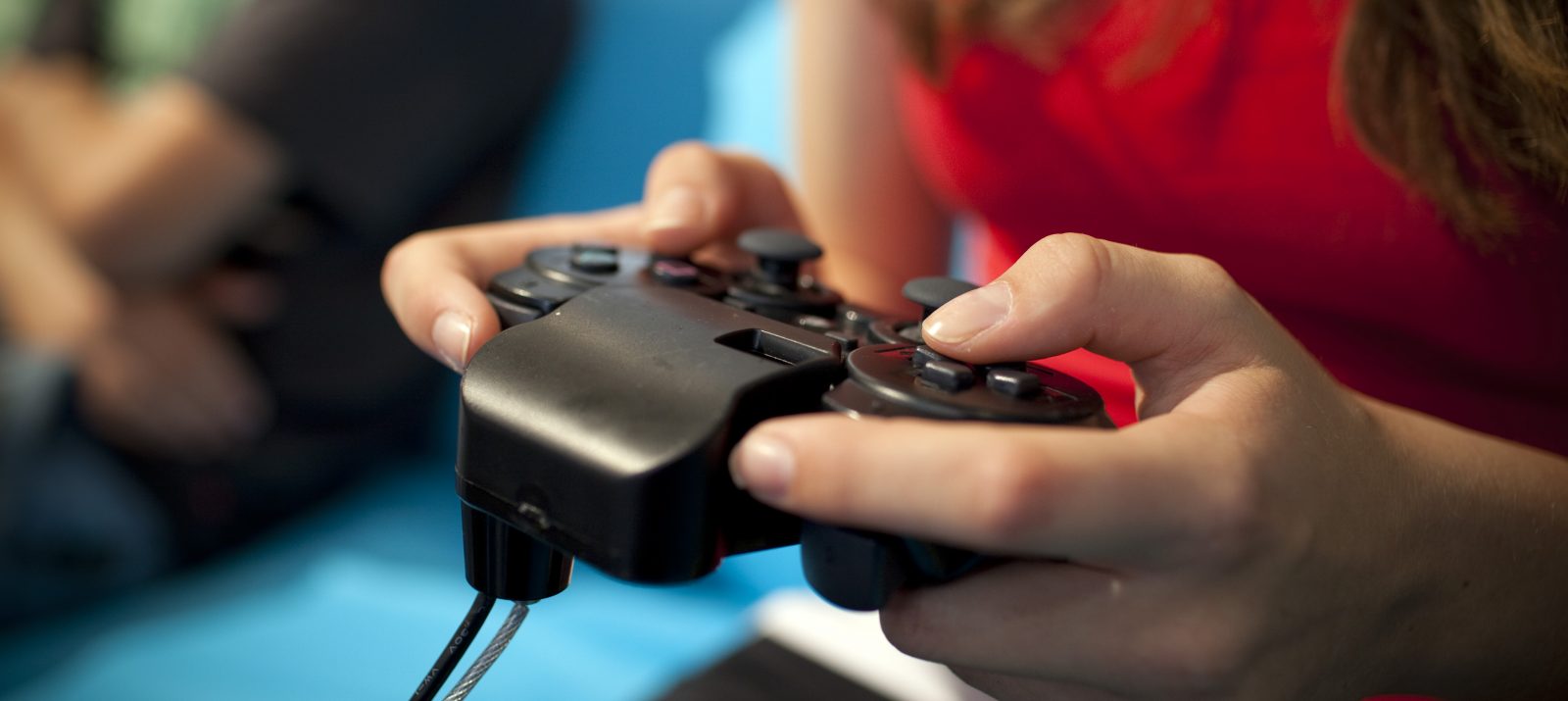
In popular computer games like GTA or Fortnite, you have to fight virtually and use violence to win. Especially boys and men like such games and you would not call them “girls games”. Many games promote stereotypes and prejudices about men or women.
In games such as Grand Theft Auto or Star Stable, typical gender roles are served. Male characters are portrayed strong, brave and heroic. Female characters are mostly emotional and have a gentle character. Girls or women are often only supporting roles in the story of a game. In the process, they are often reduced to their appearance. Extremely short skirts and large breasts contribute to the fact that they are considered sexual objects. If there are female characters in a game and you want to design their appearance before the game starts and adapt it to your own ideas, the possibilities are very limited and always correspond to supposedly valid beauty ideals.
In many games, female characters also take on the role of victims: for example, they are the princess who must be rescued. It is much rarer to have female characters as main characters or even women as heroines of a game. Very famous became the character Lara Croft, but in the game she is portrayed very sexist.
The game Star Stable is about horse riding. Only female characters can be created, which excludes boys from the outset. Instead, it promotes the stereotype that riding is strictly a girl’s thing. The female characters are all stereotypically portrayed. Even if it is positive that a gaming offer recognizes girls as computer game fans, the game is discriminatory.
Overall, women or girls barely feature in gaming culture, even though nearly half of all gamers are female. Female gamers are even often confronted with sexist and misogynistic comments in online games, gaming forums or YouTube comments. When girls play, their skills are often devalued. Comments against other sexual orientations such as homosexuality are also not uncommon.
The predominantly stereotypical portrayal of female characters, as well as male characters, reinforces sexism and expectations of certain gender roles. It has the same effect if female or male roles are simply omitted.
In this context, children and young people take their cues from the media – including games – when it comes to behavior and opinions. Young people can put themselves in different roles when playing games, try things out and communicate with others. For example, boys can also take on the role of a woman or a girl, and girls can take on the roles of a man or a boy.
Categorizing games as boy’s or girl’s games is obstructive. Regardless of gender, your child should be allowed to play any game that interests them. Of course, you should still pay attention to the age classification. Encourage your daughter to play games that are supposedly for boys if she wants to – and vice versa.
Use the occasion to talk with your child about role expectations and images. Encourage it to try different roles in the game than the usual ones. If your son or daughter communicates with other gamers during a game, it can also lead to unpleasant reactions with fellow gamers. Talk to your child about hate speech and support them in standing up for respect and fairness and taking a stand against name-calling.